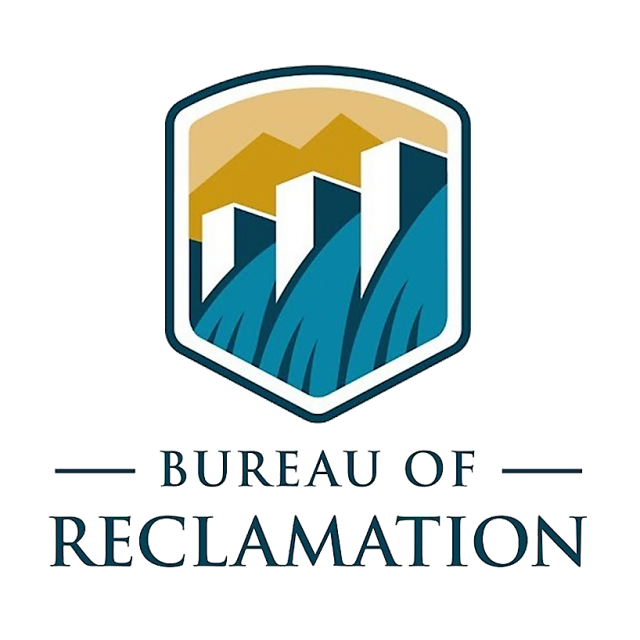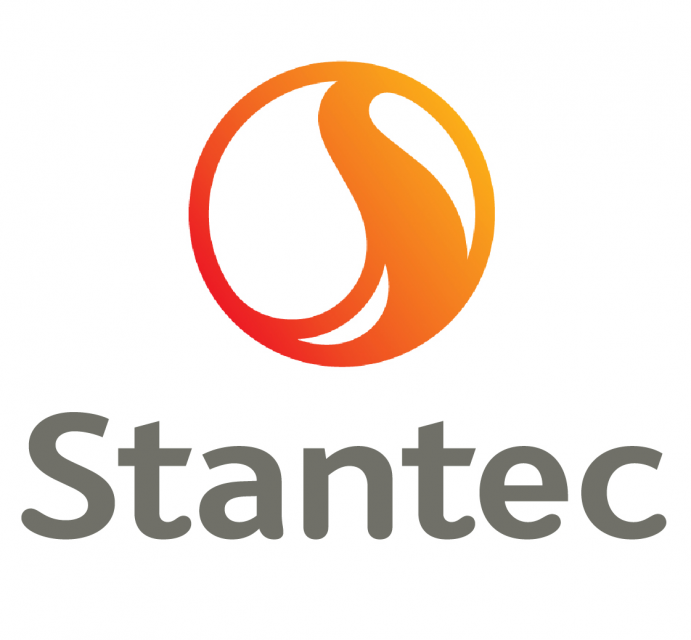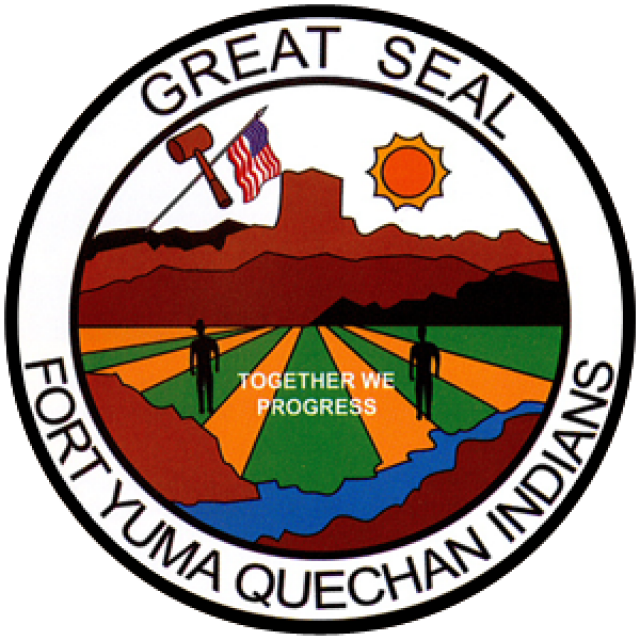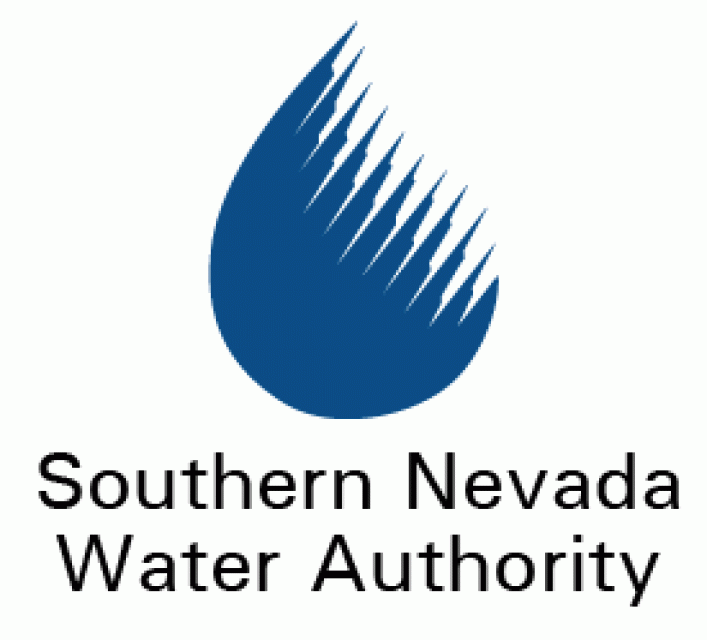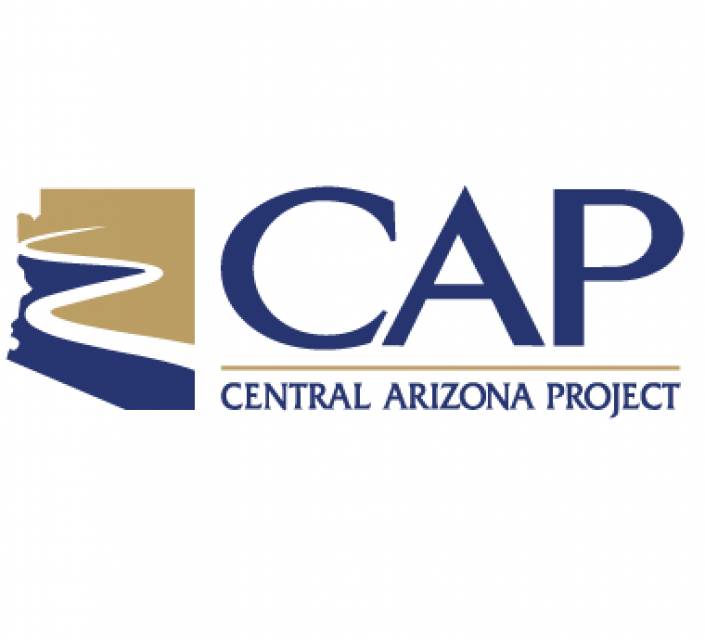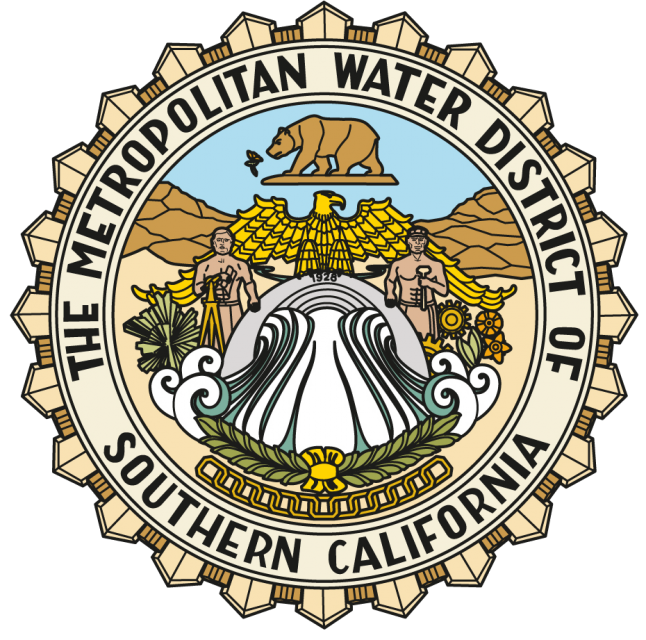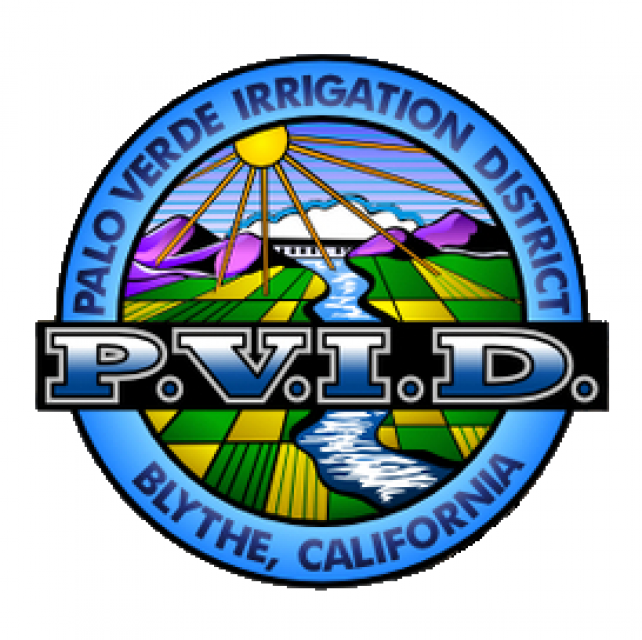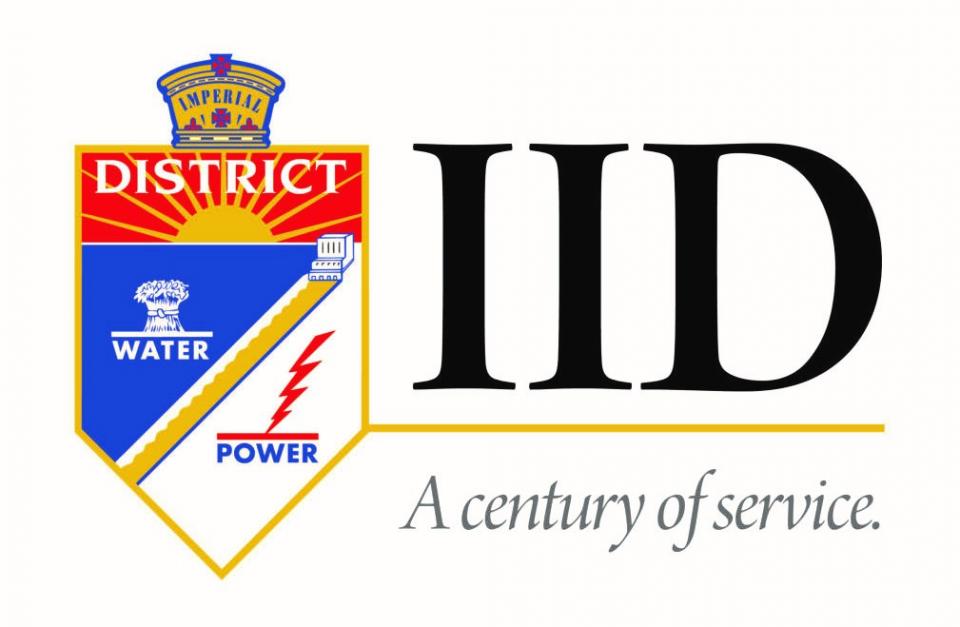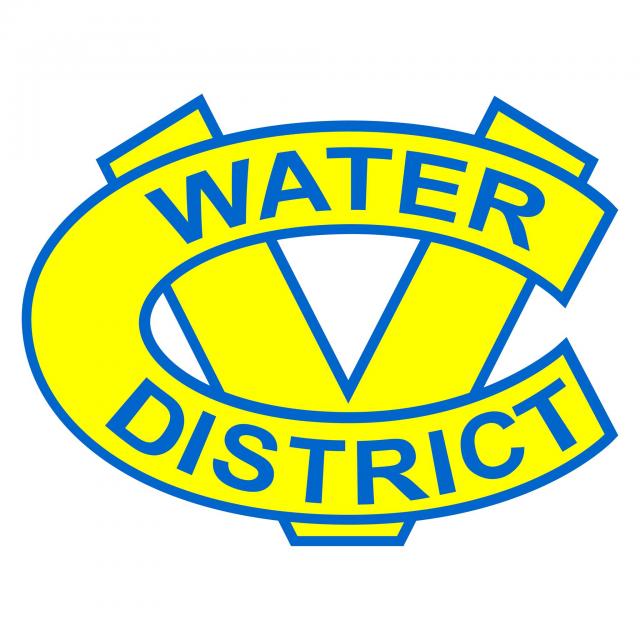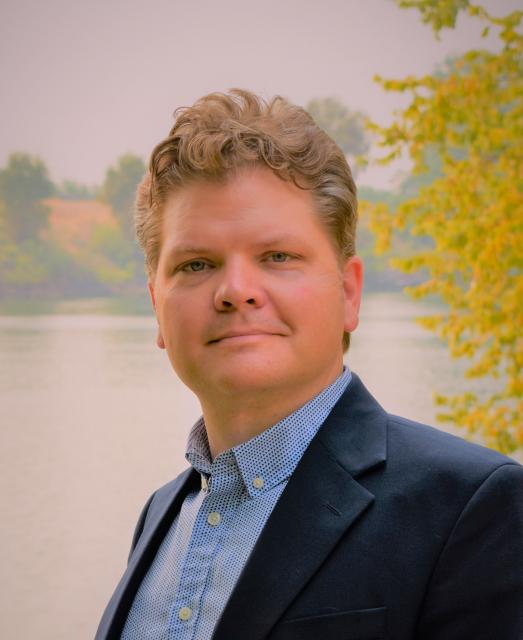Lower Colorado River Tour 2024
Field Trip - March 13-15
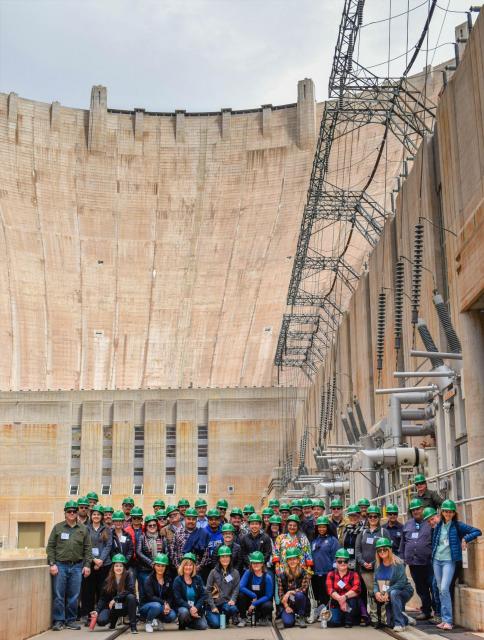 This tour explored the lower Colorado River firsthand where virtually every drop of the river is allocated, yet demand is growing from myriad sources — increasing population, declining habitat, drought and climate change.
This tour explored the lower Colorado River firsthand where virtually every drop of the river is allocated, yet demand is growing from myriad sources — increasing population, declining habitat, drought and climate change.
The 1,450-mile river is a lifeline to some 40 million people in the Southwest across seven states, 30 tribal nations and Mexico. How the Lower Basin states – Arizona, California and Nevada – use and manage this water to meet agricultural, urban, environmental and industrial needs was the focus of this tour.
This year’s tour came while the river is undergoing extraordinary and historic turmoil, just over a century after signing of the 1922 Colorado River Compact that anchors a collection of legal documents collectively known as the “Law of the River.” The compact divided the river’s watershed into two basins, established the water allotment for each basin and provided a framework for management of the river’s water resources.
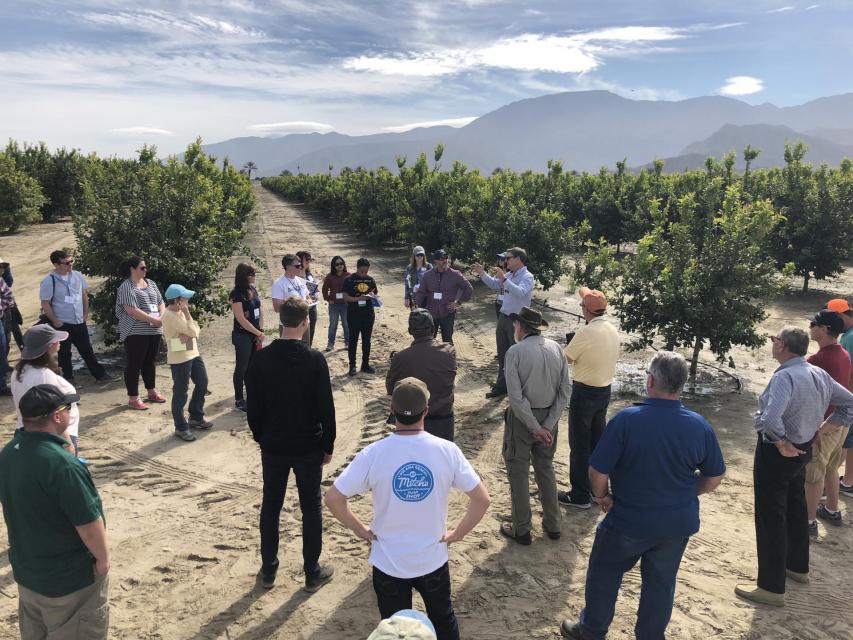 Already plagued by more than 20 years of drought, officials and water users are experiencing unprecedented conditions fueled by climate change. Even with recent improvements to snowpack, the long period of extreme dryness already sent Lake Powell and Lake Mead plunging to record low elevations and prompted the first-ever shortage declaration to occur in 2022. Despite Drought Contingency Plans enacted just a few years ago, experts agree even more urgent actions will be required before the current set of operating guidelines expire after 2026.
Already plagued by more than 20 years of drought, officials and water users are experiencing unprecedented conditions fueled by climate change. Even with recent improvements to snowpack, the long period of extreme dryness already sent Lake Powell and Lake Mead plunging to record low elevations and prompted the first-ever shortage declaration to occur in 2022. Despite Drought Contingency Plans enacted just a few years ago, experts agree even more urgent actions will be required before the current set of operating guidelines expire after 2026.
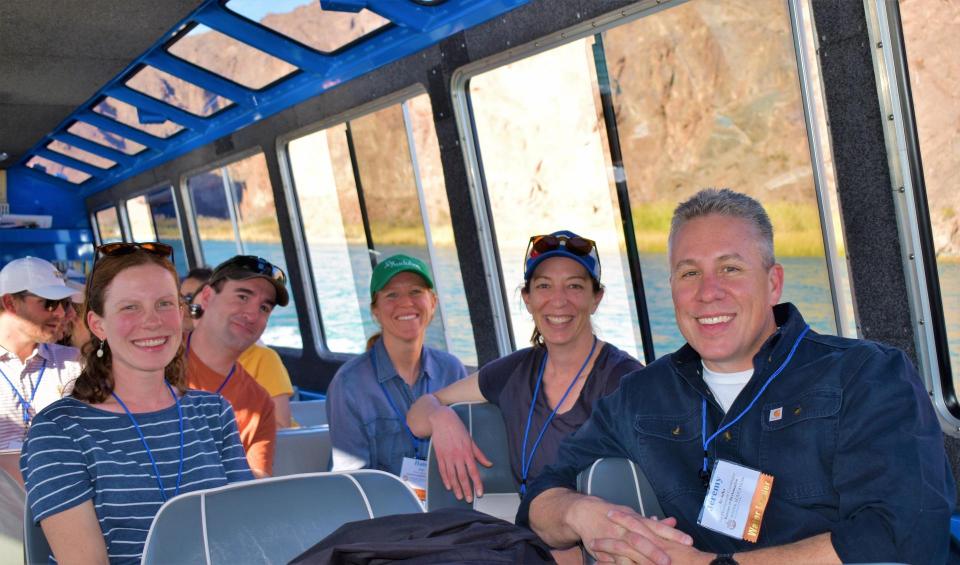 This 3-day, 2-night tour journeyed along the Lower Colorado River from Hoover Dam and Lake Mead to the Salton Sea and the Coachella Valley, including a boat trip through scenic Topock Gorge. Along the way, experts discussed challenges related to what is the most contested, beloved for recreation and meticulously managed river in the United States.
This 3-day, 2-night tour journeyed along the Lower Colorado River from Hoover Dam and Lake Mead to the Salton Sea and the Coachella Valley, including a boat trip through scenic Topock Gorge. Along the way, experts discussed challenges related to what is the most contested, beloved for recreation and meticulously managed river in the United States.
What attendees say about this tour:
“The program for the tour was put together extremely well to create a cohesive learning experience. The tour enhanced my understanding of demands on the river and how managers are working to address water availability.”
“I highly recommend this tour to others. I feel this coming-together is very important to the future of water cooperation in California and the West. The tour helped me meet water users that I knew vaguely, and turned them into real people with real issues and real lives.”
“The quality of the speakers was amazing – truly great to hear from so many experts to understand different perspectives.”
Planned Stops Included:
- Hoover Dam
- Lake Mead
- Central Arizona Project’s Mark Wilmer Pumping Plant
- Havasu National Wildlife Refuge
- Whitsett Intake Pumping Plant on the Colorado River Aqueduct
- Farms in the Palo Verde, Imperial & Coachella valleys
- Imperial Dam and the All-American Canal
- The Salton Sea
Planned Topics Included:
- Law of the River
- Drought conditions & contingency planning in the Colorado River Basin
- Lower Basin state perspectives – Arizona, California & Nevada
- Tribal water rights & use
- The Quantification Settlement Agreement (QSA)
- Warren H. Brock Storage Reservoir & lining the All-American Canal
- Binational water management
- Agricultural water use, drainage issues & salinity
- Urban use, history & development
- The Colorado River Basin Study
- Endangered species & the Multi-Species Conservation Program (MSCP)
- Salton Sea restoration
- Climate change
Tour Start & End Points:
The tour started at 7:30 a.m. on March 13 in Las Vegas and ended at Ontario International Airport in California at 6:30 p.m. on March 15.
A limited number of ”California Option” tickets were available which started and ended the tour for participants in California.
The tour included overnight stays in Lake Havasu City, AZ, and Winterhaven, CA, which were arranged by the Foundation and covered by the registration fee.
The tour began at the Hilton Garden Inn Las Vegas Strip South which offers a free shuttle from Harry Reid International Airport (LAS). A discounted room rate for tour participants was arranged and a self-pay booking link was provided upon registration for the tour.
Pricing Details:
General – $979 (one person, single-occupancy room)
Fee included all tour meals, transportation, materials, snacks and hotel accommodations once the tour began Wednesday. Meals covered by the registration fee included lunch on Wednesday through lunch on Friday. Participants were responsible for their own transportation to and from the tour’s beginning and end points.
This ticket option was designed for state agency employees with travel expense restrictions, but was available to any participant who wanted transportation aboard the tour bus on the afternoon of March 12, from Ontario Airport in Southern California to Las Vegas and a hotel room that night. Meals on March 12 were not included.
A limited amount of scholarship funding was available to pay for a portion of the tour. Scholarships were awarded based on a few factors, including:
- Financial need
- Reason for scholarship request
- How the education & experience will be used after the tour
Cancellation & Refund Policy:
The deadline to cancel and receive a refund was three weeks prior to the first day of the tour due to lodging, meal and transportation commitments. Substitutions were allowed up to five business days before the tour. Eventbrite fees were nonrefundable and the remaining amount may have been subject to an additional processing fee.
We recognize that unexpected conflicts with our tours can occur from time to time. The Water Education Foundation recommended participants consider arranging travel insurance from a provider of their choice soon after tour registration to protect against such unfortunate events.
Continuing Education Credits:
MCLE credits were available only for California attorneys for an additional fee, and may have been available for water plant/wastewater plant operators and other vocations/professions.
7830 S Las Vegas Blvd
Las Vegas, NV 89123






